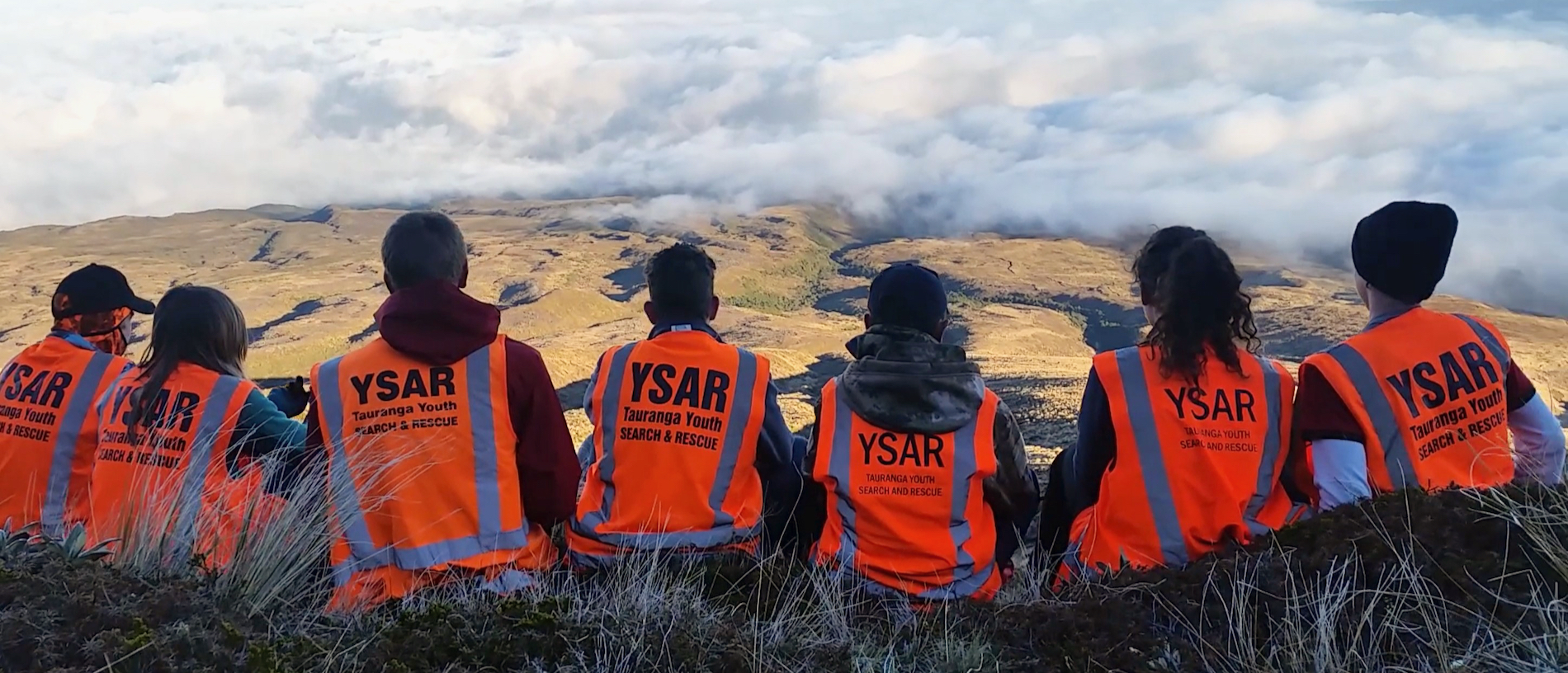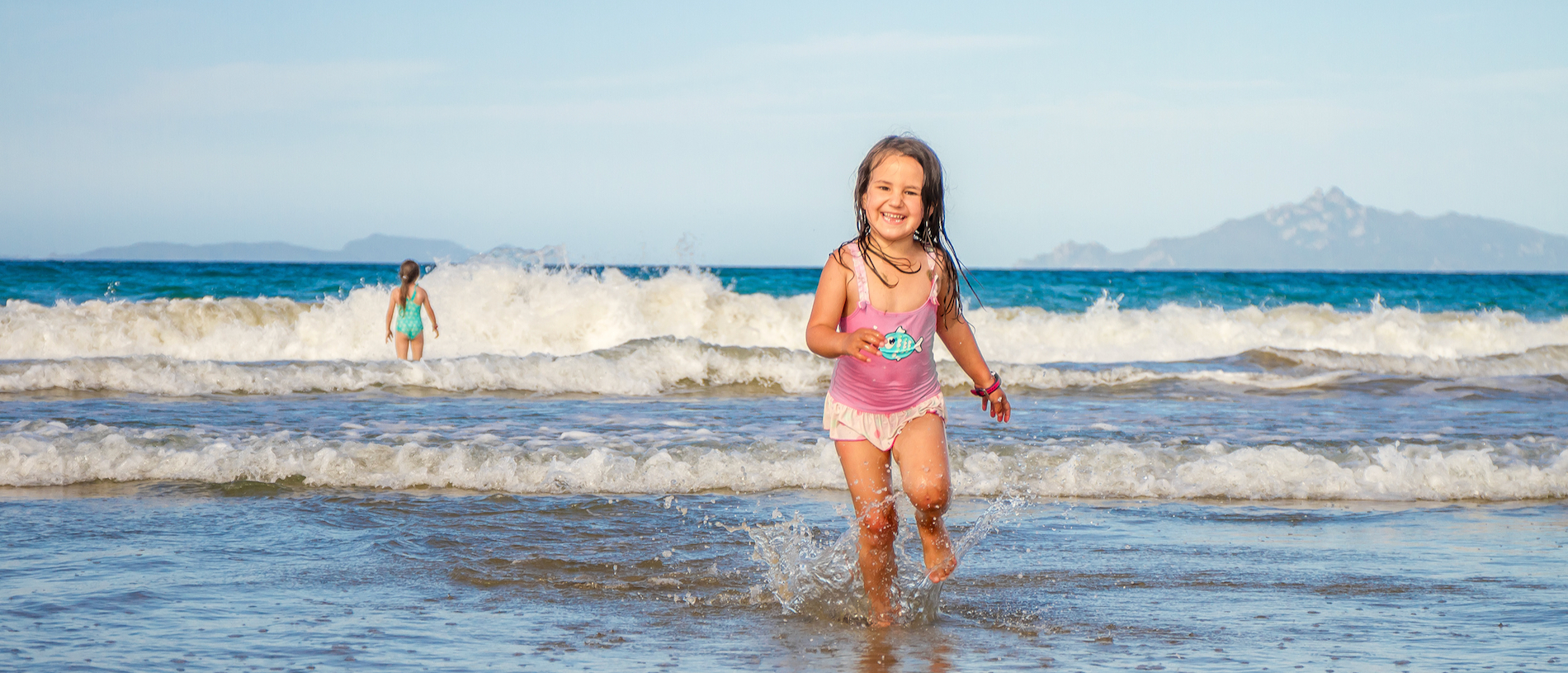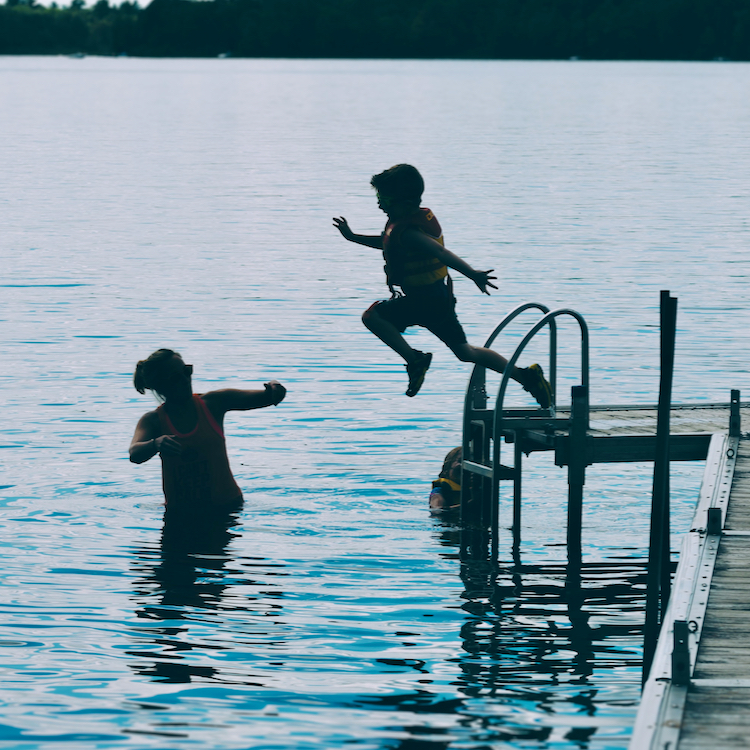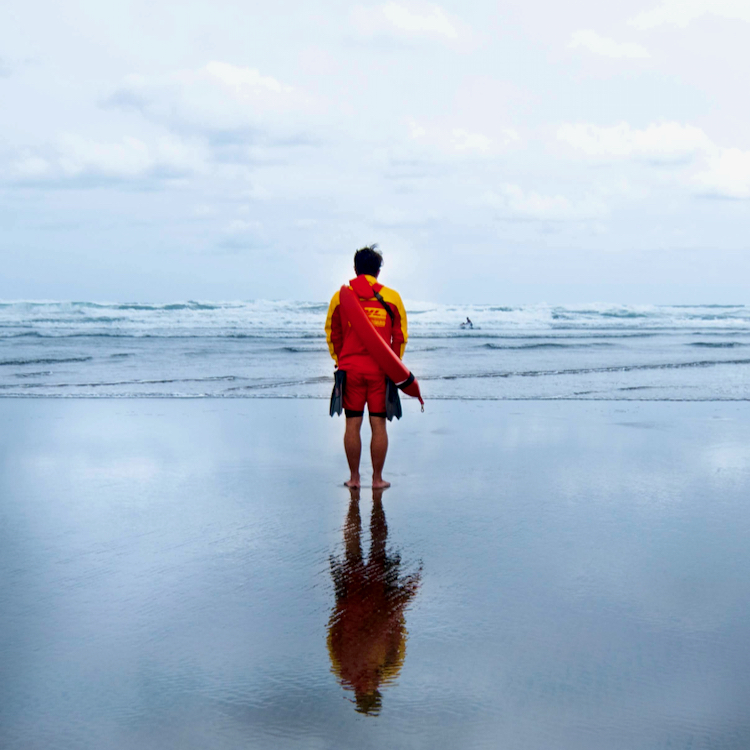
How to learn search and rescue skills
Youth Search and Rescue is a course designed to teach teenagers important search and survival skills.

We are a water-loving nation. New Zealand boasts 15,000 kilometres of coastline, almost 4,000 lakes (larger than one hectare) and 90 percent of us live within 40 minutes of a beach. But those crystal waters and bubbling surf can be a lethal place to play. In 2022, 94 people lost their lives to drowning – the worst number in a decade.
“Any body of water can present risks – whether that’s a pool, lake, river or beach,” says Chief Executive of Water Safety New Zealand, Daniel Gerrard. Daniel says it’s about whānau starting with the basics. “From youngsters to adults and parents, it’s crucial to know how to float, tread water and where not to swim. We often think someone else is watching our children, but avoid making that assumption. Create a roster for who will be responsible for supervising your children and make sure that kids stay within arm’s reach.”
Take swimming lessons if you or your loved ones are not strong swimmers. Learning CPR and first aid skills is also advisable, as they can be lifesaving in emergencies. Make sure everyone in your group knows who to call in the event of an emergency (111 Police).

Daniel recognises that the cost of learning to swim may be difficult for some families. “Talk to your child’s primary school about Water Skills for Life, a national standard for aquatic education in New Zealand primary schools.”
If your children need beach education, the Junior Surf programmes run nationwide by Surf Life Saving New Zealand (SLSNZ) is a great place to start. Andy Kent, National Lifesaving Manager at SLSNZ, says, “our volunteer clubs run this programme every Sunday morning during summer, and we have a membership of over 10,000 kids,” Andy says. “It’s a great way to build fit and healthy kids who learn how to keep themselves and others safe.”
For boaties, that means doing your pre-season maintenance. Rob McCaw, Head of Operations at Coastguard New Zealand, says these regular checks can prevent disaster. “The vast majority of the 3,500 callouts we receive each year are due to engine breakdowns, electrical faults and running out of gas. Most of these are preventable if thorough checks are made before getting on the water.”
As well as the physical checks, it’s well worth educating yourself on water safety. Coastguard runs 20 programmes nationwide, including Day Skipper and Marine VHF Operator’s Certificate courses. Coastguard also delivers courses to under-serviced communities. Their Folau Malu, Kia Maanu Kia Ora and Chinese programmes have all been well attended.
When choosing where to go, familiarise yourself with the conditions and review safety notices at each location. Find out what local signs and flags mean. Andy directs people towards safeswim.org.nz. The website, launched last year, gives up-to-the-minute information on swimming conditions and water quality at beaches nationwide. “At SLSNZ, we always advise beachgoers to swim between the red and yellow flags on patrolled beaches,” Andy says. “We have over 4,300 volunteer surf lifeguards at 92 locations around the country. If you do choose to swim at an unpatrolled beach, know your limits and if in doubt, stay out. Trust your gut feeling.”

New Zealand’s weather can be unpredictable and coastal areas are always susceptible to changing tides. Each beach has its own quirks, such as dangerous currents, strong winds, rips or rough waters, making swimming, boating or any water activities hazardous. Always prioritise your safety and reschedule or change your plans if the weather or tides are unfavourable.
According to Andy, rips are the biggest hazard on New Zealand beaches. As a moving current of water, they can cause people to panic and tire themselves if caught in one. Andy suggests applying the three Rs for survival. “Relax and float. Raise your hand to send for help. Ride the rip,” Andy says. “A rip may take you along the beach or out to sea, but generally it won’t take you kilometres off the beach.”
Regardless of your swimming abilities, always wear a lifejacket when boating, kayaking, or paddleboarding and make sure it fits properly. It is also advisable to wear a wetsuit or rash guard to protect yourself from cold water, sunburn and potential abrasions.
Coastguard New Zealand and Water Safety New Zealand are advocating for national mandatory lifejacket legislation for those operating vessels six metres and under.
The Old4New Lifejacket Upgrade campaign is over a decade old, with two Coastguard vans travelling up and down the country delivering fit-for-purpose lifejackets at discounted prices. Last summer, the charity delivered almost 2,500 new lifejackets and took over 3,500 old or damaged lifejackets out of circulation.
1. Know how to float
If you get into trouble, float on your back with your ears in the water – this will increase your chances of survival. Relax and breathe normally. If you don’t know how to float, get some lessons and practice before you enter the water.
2. Find the safest place
Take a moment to assess the conditions and look for dangers like strong currents. Find the safest place to get in and out of the water. Places with lifeguards on duty are safest. Listen to the lifeguards and pay attention to warning signs and flags.
3. If in doubt, stay out
Check the weather before leaving home. If you’re unsure about your skill level, the weather or the water conditions, it’s better to wait for another day. Weather and water conditions can change quickly.
4. Take care of yourself and others
Always go with a buddy and tell someone your plans. When wearing a lifejacket, make sure it fits properly. When children are in or near the water, a responsible adult should be within arm’s reach and watching them carefully.
5. Know how to get help
If you get into trouble, raise your arm and call out for help. If you see someone who needs help, call 111 and ask for Police.
Story by Kathy Catton for the Spring 2023 issue of AA Directions Magazine. Kathy Catton is a Christchurch-based freelance writer who regularly contributes to AA Directions Magazine.